Three years of traveling around the world, learning new instruments and his first real collaborations with more conventional vocalists have all gone into the rich tapestry of Iradelphic, and have truly bought Clark’s sound back down to earth with a rich self awareness and an audible hunger to really explore new things.
It’s always a bit of a tall order when an established and acclaimed artist states prior to their highly anticipated new album that it’s been a “journey” or “reinvention,” and in Christopher Stephen Clark’s case “Wanting to reinvent my sound while still sounding like me.” For an artist like Clark who’s solid consistency amid his otherworldly and spine-chilling take on modern electronic music has been his bread and butter, this isn’t necessarily the risky news fans actually want to hear from him. Over the course of his five previous solo albums and countless EP’s, Clark has single-handedly sneaked up behind the likes of his Warp Records predecessors during their quieter times, and slowly made a very commendable effort to de-throne them. With Richard D James’ ten year Aphex Twin hiatus not looking likely to be interrupted any time soon, Squarepusher going ’round in circles over the course of his last four albums, Warp has been without a token “golden boy” for a while, despite fellow veterans Autechre and Plaid’s consistently solid but infrequent efforts. To some, Clarke snatched this title with ease somewhere around the Empty The Bones Of You and Body Riddle era, yet his profile has never quite broke through. Most likely due to the sheer over-saturation of various electronic music that erupted throughout the 00’s. Even so, a new Clark album has always been a welcome benchmark of idiosyncratic quality around whatever other bandwagon is going on at the time.
Clark’s own personal benchmark is arguably 2006’s Body Riddle. A near-flawless crystallized suite of fully realized and immaculately presented amalgamation of all the haunting melodics, dense production, viscous beats and that signature Clark atmosphere (that’s so damn hard to put a finger on) that he’d only really poked at with on his debut (Clarence Park, 2001) and played with like a kids chemistry set on with his sophomore (Empty The Bones Of You, 2003). Without “doing a Radiohead,” Clark decided to make a conscious side step in following Body Riddle by taking his work straight to people’s feet. 2008’s pummeling Turning Dragon purposely restrained its prettier side in order for the dirt, blood, muscle and teeth to rise and have you throwing maniacal shapes in no time. While 2009’s Totems Flare caused a bit of head scratching by not apparently going either one way or another, preferring to bounce back and forth between the brawn of Turning Dragon and the brains of Body Riddle. It has since unfolded generously though into perhaps his biggest grower with truly spectacular tracks such as “Growl’s Garden” and “Rainbow Voodoo” emerging as firm favourites, despite the album itself not initially being one you’d think to reach for first when in the mood for a bit of Clark. So it was perhaps inevitable that album six would be his most conscious reinvention to date
Three years of traveling around the world, learning new instruments and his first real collaborations with more conventional vocalists have all gone into the rich tapestry of Iradelphic, and have truly bought Clark’s sound back down to earth with a rich self awareness and an audible hunger to really explore new things. This very quality—though at its spikiest and most divisive—is one not all that unfamiliar with Warp fans. In 2006, Boards Of Canada made a point of following their eerie masterpiece Geogaddi with the purposely more acoustically-founded The Campfire Headphase. While its intentions were pure and wholesome, it ultimately came off lacklustre and its promise of acoustic foundations were essentially just cut, pasted and looped guitars resulting in something of a creative misfire. Iradelphic teeters dangerously close to such hazards as the balance between raw and unripe experiments with the traditional and acoustic risk overshadowing the progression of the production. Fortunately for Clark though, his production aesthetic is so far ahead of the pack in general that Iradephic still makes for an intoxicating listen, despite some frequenting niggles.
Kicking off Clark’s new thirst for the traditional with the predictable but pretty “Henderson Wrench,” which essentially is everything you imagine a short Clark intro to be if he only had a few acoustic guitar chords to cut and paste as his source material. Not a bad thing at all, but it’s up to the brilliant “Com Touch” to really light the album’s fuse. Here Clark gets his teeth deeply into his most melodic, sweet and joyous synths and sparkles yet as the track bounces along with goosebumps, sweet abandonment and the impression that Clark’s been playing a lot of vintage Zelda on a dusty old Sega Master System, before some snarling but subtle beats and bass kick in before the sweetness gets too comfortable. If a softer and mushier Clark is to unravel over the rest of the album, more of this would made for quite a ride. Unfortunately, things don’t quite pan out that way. “Tooth Moves” keeps the hazy retro mood going well enough with its introduction of real drumming and sleazy old-school synths, but runs out of steam rather than getting torn to shreds gloriously as only Clark ordinarily knows how. The squeaky ambient “Skyward Bruise/Descent” interlude only stalls momentum before the album has really had chance to get going, but does lead invitingly into the first notable collaboration with the sweet vocals of Martina Topley Bird on “Open.” Although delicate and rightfully beautiful, its simplicity leads it to pale in comparison with the brilliant next track “Secret,” in which Topley-Bird is given a full lyric and structure to flirt with and Clark has more of a developed base to play with; and play he does. Building mid way with some brilliant scat-vocals and throbbing bass and glitch, the track really gels together what you suspect Clark was going for in general.
“Ghosted” follows with a more twisted and unsettling take on the “Henderson Wretch” formula with an added deep male chant for extra spook-value, while the brief but lovely piano solo “Black Stone” (video/film below) resets the scales. There’s already a lot of back and forth going on with the atmosphere and moods, and while all the tracks so far are all marvelous in their own right, there’s already a very absent thread stitching it altogether. Although unmistakeably “Clark” in its sound and aesthetic, the album does come across as more of a scrapbook than a novel. We needn’t worry though as three part suite, “The Pining,” is about to assault us with euphoria on all levels. Pt. 1 takes its repetitive but joyous and catchy melody through a densely edited brewing pot of hand claps, guitars and synths, before Pt. 2 goes wild on a harpsichord and really let’s the album’s hair down finally with a much grittier effect. Topley-Bird returns to joyously improvise as the track goes tremendously over the top and back again, before Pt. 3 winds down with soft chimes and deep synths determined to keep the melody and joy alive until it eventually fades away. The melody will be stuck with you for hours and only narrowly avoids being too repetitive over three whole tracks for its own good. But, it is lovely. While a much more thorough and complex composition and could have been made of this suite with ease (and time), should Clark wish to produce a pissed-up pub sing along version for a future Pt.4, it would still be just as lovely.
As proceedings are drawn to a close with the tense ambient drone of “Broken Kite Footage,” Clark’s shortest album does indeed feel a bit short. While frequently raising the hairs on your arms at times, you suspect Clark didn’t need to travel the world and edit guitars in order to achieve that. At moments where that itself feels a little too contrived you can’t help but wonder if some of the beef and rawer moments of Totems Flare or even Clarence Park could have taken some of the tracks to even greater heights. Those unfamiliar with Clark’s mighty catalog may well be blown away by this, but there’s also the risk of them wanting to hear something that goes either one way or the other. It took Clark two great albums to produce the still mind-boggling Body Riddle. If Clark’s future is that of further experiments with the traditional and acoustic, then it might just take him another two albums to really nail it. But there’s no denying that it won’t be one hell of a scenic road trip getting there—complete with a few burst tires, bumps in the road and bizarre hitch-hikers along the way. But don’t those rough bits often make for the best highlights of any great tale in retrospect?
Iradelphic is available on Warp.






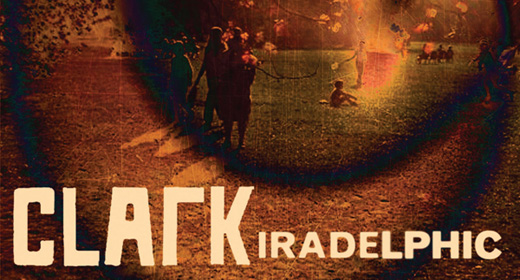



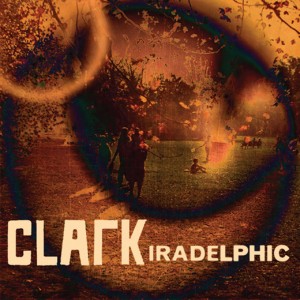
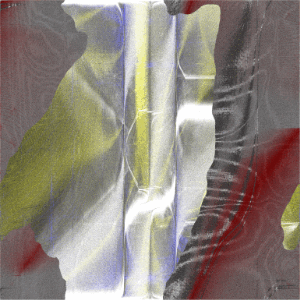
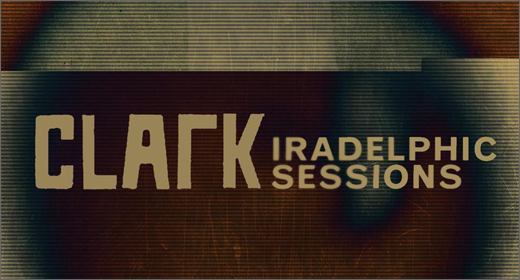
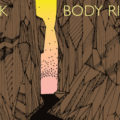
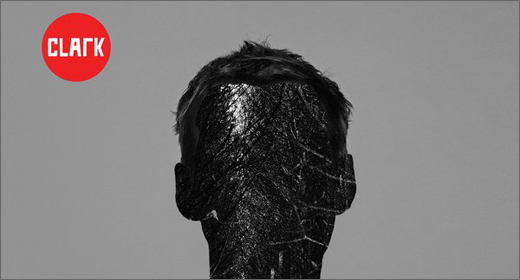
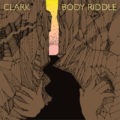
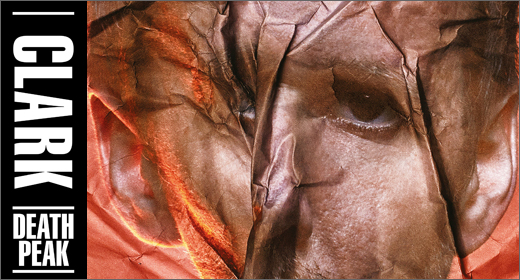


![Ndorfik & madebyitself :: Solos EP (People Can Listen) — [concise]](https://igloomag.com/wp/wp-content/uploads/2025/04/ndorfik-madebyitself-solos_feat-75x75.jpg)







